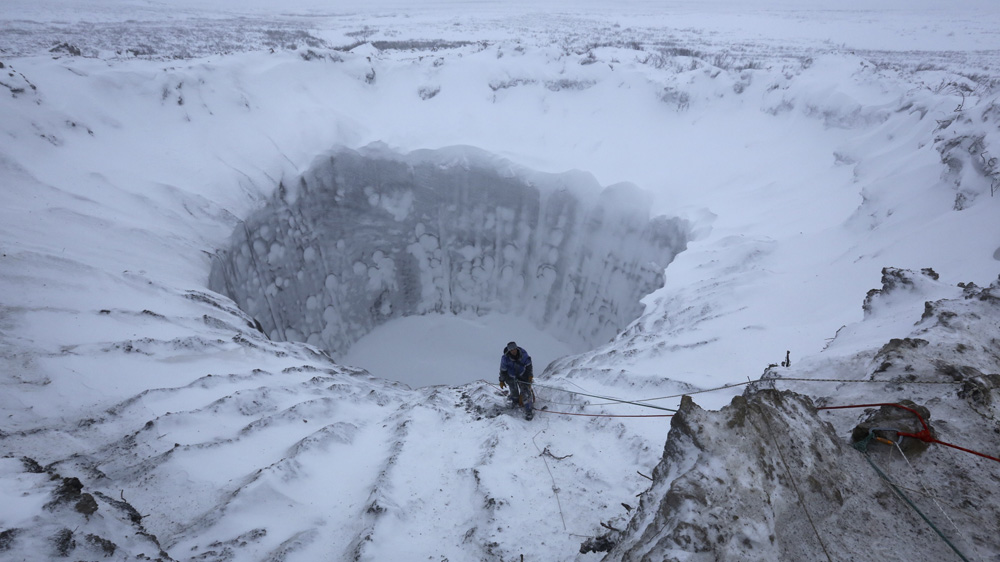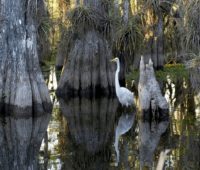
A member of an expedition group stands on the edge of a newly formed crater on the Yamal Peninsula, northern Siberia November 9, 2014. A group of scientists and discoverers in November went on an expedition initiated by the Russian Centre of Arctic Exploration to research the crater after pilots captured it on video in July 2014 which attracted the attention of world public. Participants managed to descend down to about 16 metres (52.4 feet) and reached the frozen surface of the base of the crater with a lake at least 10 metres (32.8 feet) deep below, according to Vladimir Pushkarev, head of the Russian Centre of Arctic Exploration. Experts, including geologists and historians, have not come to a consensus about the origin of the funnel yet, Russian media report. Picture taken November 9. REUTERS/Vladimir Pushkarev/Russian Centre of Arctic Exploration (RUSSIA - Tags: ENVIRONMENT SCIENCE TECHNOLOGY TPX IMAGES OF THE DAY) - RTR4F0WJ
The ice in Antarctica continues to threaten coastal cities around the world. Over the last 40 years, Antarctica lost 540 billion metric tons of ice, and the glaciers continue to melt at an alarming rate. Climate scientists now say living in cities like Miami and New Orleans will require wearing full scuba gear in ten years.
But it’s not just the melting ice that threatens cities around the world. Scientists claim hurricanes, typhoons, and inland floods will batter cities all over the world. Some cities will never be the same as the planet turns up the ocean heat, and the tectonic plates continue to rearrange themselves.
People living in Florida and other coastal states will move inland and settle in cities like Boulder, Colorado, or Tulsa Oklahoma to stay avoid the blunt end of these pending natural disasters, according to climate researchers. But no city is safe from the ancient parasites and free radicals that will come alive as the permafrost continues to melt. Scientists claim the coronavirus is just the tip of the permafrost parasite outbreak that the world faces over the next ten years.
The permafrost in Siberia continues to produce bones of wooly mammoths and wooly rhinos, as well as wolves and other animals that roamed that part of the world thousands of years ago. Bone hunters recently discovered a female horned lark that lived 46,000 years ago. The bird is a subspecies of the larks found in Siberia and Mongolia today, according to Fox News.
Siberian researchers haven’t identified any unfrozen parasites yet, but President Trump found one in Hollywood, and he didn’t like what it represented. “Parasites,” the South Korean dark comedy didn’t tickle the president’s funny bone. Mr. Trump wondered what happened to the golden years of Hollywood when “Gone With The Wind” and “Casablanca” gave moviegoers enough understandable drama to win Academy Awards. Mr. Trump told a group in Colorado he didn’t get the amusing “Parasites” story. The president also said South Korea continues to give him the shaky-leg syndrome over trade.
The producers of “Parasites” responded to the president’s film bashing by saying Mr. Trump’s uneasiness makes sense because he can’t read. The film used English subtitles. And Bette Midler couldn’t resist sending a tweet that said she more upset about the parasite living in the White House, according to Yahoo news.














Leave a Reply
Be the First to Comment!
You must be logged in to post a comment.
You must be logged in to post a comment.